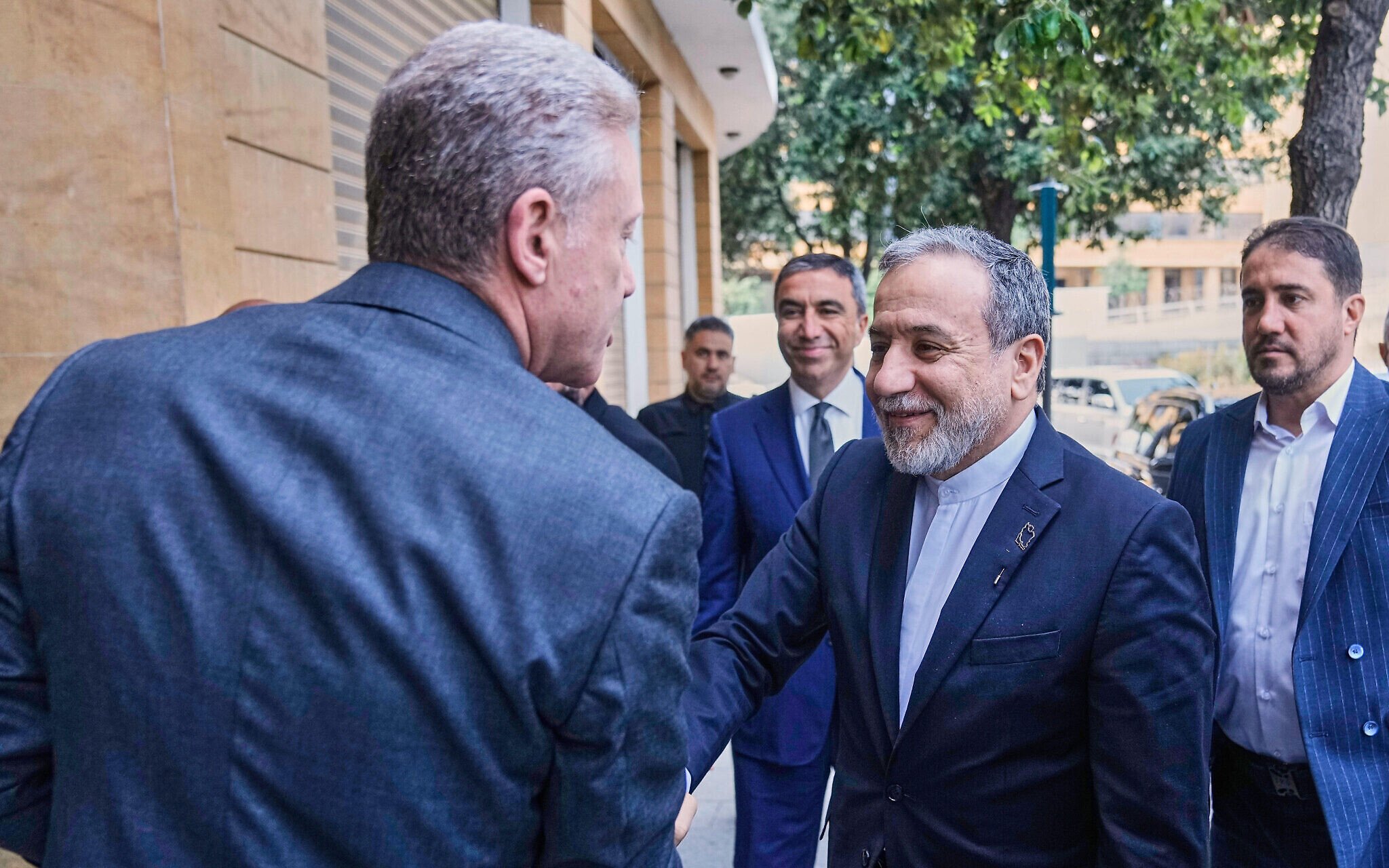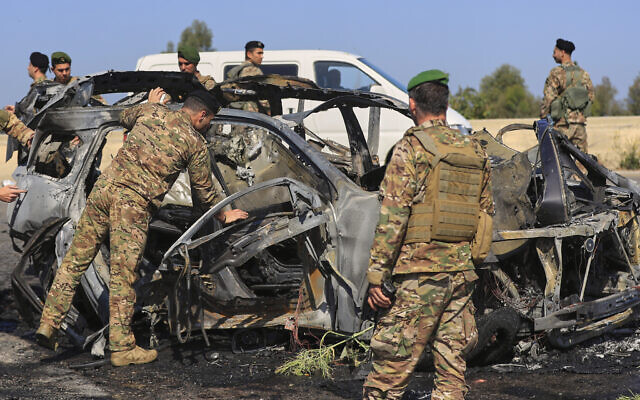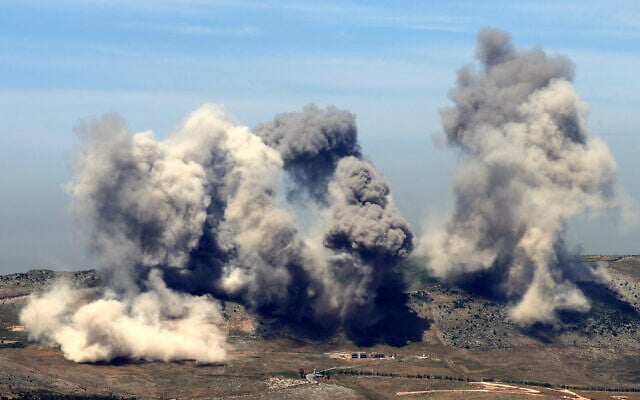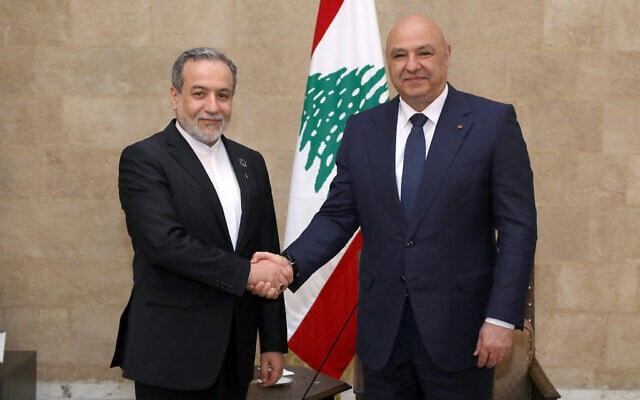



Lebanese Foreign Minister Youssef Raji informed his Iranian counterpart, Abbas Araghchi, on Tuesday that Hezbollah had put his country in a “difficult situation” when it embarked on more than a year of fighting with neighboring Israel in 2023, and stressed the importance of disarming the Tehran-backed terror group.
Araghchi met with Raji — a member of the Christian anti-Hezbollah Lebanese Forces party — in Beirut, on his first visit to Lebanon since October last year, when Hezbollah was in the midst of an all-out war with Israel in southern Lebanon.
A month later, Beirut and Jerusalem would sign a ceasefire agreement that brought an end to the fighting and the withdrawal of the vast majority of Israel’s troops.
During the meeting, Raji told Araghchi that recent “military adventures” — an apparent reference to Hezbollah — had put the country in a “difficult situation,” the Saudi Al Arabiya news outlet reported.
These adventures, Raji told his Iranian counterpart, “had not contributed to ending the Israeli occupation of Lebanese territory.”
When Israel withdrew from southern Lebanon following the deployment of the Lebanese Armed Forces per the terms of the November 2024 ceasefire, it left troops stationed in five posts located several hundred meters inside Lebanon, which it says are necessary to defend Israeli border communities.
Six months on from the start of the ceasefire, the Lebanese state has been working methodically to dismantle Hezbollah infrastructure in the south of the country, and is estimated to have seized the majority of the terror group’s weapons stockpile in the same area.
In an interview with The Wall Street Journal last week, Lebanese Prime Minister Nawaf Salam said that his government had achieved 80 percent of its objectives regarding the disarmament of militias in the country’s south.
“All over the Lebanese territory, the state should have a monopoly on arms,” Salam told the US outlet, stressing “the need to extend and consolidate the authority of the state.”
Echoing his prime minister on Tuesday, Raji appeared to take a firm stance against allowing Iran’s agenda to influence Lebanon’s future, telling Araghchi that the country’s ability to recover from the recent fighting was tied to Hezbollah’s disarmament, Al Arabiya reported.
Unprovoked, Hezbollah began attacking military outposts and communities in northern Israel on October 8, 2023, in a show of support for fellow Iranian proxy Hamas in Gaza after its assault on southern Israel a day earlier.
The fighting continued for more than a year, including some two months of open war in southern Lebanon, and ended with the ceasefire signed in late November.
The fighting displaced over 1 million people inside Lebanon, and caused destruction that the World Bank has said will cost $11 billion in reconstruction.
Raji informed Araghchi that “coordination between Lebanon and Iran should occur through official state channels,” rather than via intermediaries like Hezbollah, which enjoys Tehran’s support, monetary and otherwise, having received billions of dollars and all types of weapons over the years.
The remarks cited by Al Arabiya could not be independently confirmed.
The importance of Lebanon’s sovereignty and its control over non-state entities was imparted to Araghchi more than once during his visit.
Lebanon’s President Joseph Aoun told the visiting Iranian official during their meeting that Beirut wants “to strengthen relations from state to state with Iran.” Aoun’s comments were released by his office following the meeting.
For his part, Araghchi said following a meeting with Parliament Speaker Nabih Berri, a Hezbollah ally, that Iran looked forward “to having relations (with Lebanon) based on mutual respect and non-interference in each country’s internal affairs.”
Then, offering his opinion on Lebanon’s internal affairs, he noted that Iran backs a national dialogue in Lebanon between rival groups.
He also condemned the continued presence of troops of “the Zionist entity” at several strategic locations inside Lebanon, and said that Iran supported “all efforts exerted by the Lebanese government and people to expel the occupiers through any way including diplomatic efforts.”
He said Iranian companies were ready to take part in Lebanon’s reconstruction if the Lebanese government wanted them to.
Since the start of the US-backed ceasefire agreement signed by Israel and Lebanon, the IDF has continued to launch targeted strikes on Hezbollah operatives and infrastructure, alleging violations of the truce agreement. According to the IDF, over 180 Hezbollah operatives have been killed in that time.
The ceasefire, which is based on the framework of UN Security Council Resolution 1701 from 2006, requires Hezbollah to withdraw its fighters north of the Litani River — about 30 kilometers (19 miles) from the border — and dismantle all military infrastructure in southern Lebanon.
Speaking to The Wall Street Journal last week, an unnamed IDF official said Israel was “generally pleased” with the Lebanese military’s progress in dismantling Hezbollah’s infrastructure, and acknowledged that it was “way more effective than expected.”
Challenges remain, however, as Hezbollah has linked any discussions about its remaining arsenal to Israel’s withdrawal from its remaining positions inside Lebanon and the end of Israeli military action.



